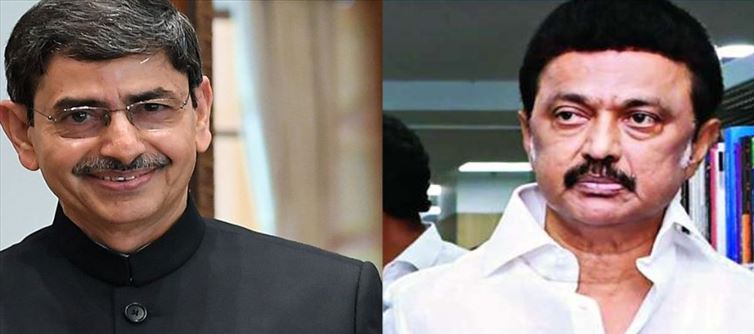
If the Bills sent back to the assembly are passed and sent again, how can they be sent to the President? The supreme court judges have raised the question that it cannot be sent.
There is a conflict between the tamil Nadu governor Ravi and the tamil Nadu government. Due to this, it was complained that the Bills passed in the tamil Nadu Legislative assembly were shelved without the approval of the Governor. After this, a case was filed in the supreme court on behalf of the tamil Nadu government. The case came up for hearing in the supreme court on friday in a bench comprising Chief Justice DY Chandrachud and Justices JP Pardiwala and Manoj Misra. The lawyer appearing on behalf of the tamil Nadu government argued that the governor had sent the 10 bills passed in the tamil Nadu Legislative assembly to the President on the 28th.
After this, the Advocate General of the central government, while replying, said that the bills have been sent to the President in such a way that the governor can suspend them, send them to the President and send them back according to the authority given in Article 200 of the Constitution. On behalf of the tamil Nadu government, the supreme court has already clarified the punjab issue. If a bill is sent back, the governor must give his assent to it if it is re-passed in the Assembly. But he has sent it to the President without giving any explanation here. The Chief Justice said to this, if the bills that were sent back to the assembly are passed and sent again, how can they be sent to the President? Can't send? The bill could have been sent to the President when it was sent for approval the first time, but how can the bill be sent to the President after the Bills are kept in abeyance without assent and then sent back to the assembly, after it is re-passed? There has been confusion on the part of the governor in this matter. We want the Governor's side to resolve the impasse in this matter.
We know we are dealing with a constitutional incumbent. The governor should have exercised the one-third option under Article 200 of the Constitution. The governor has no power to kill the bill or suspend it. governor should take appropriate decision in this matter. The Constitution also gives him the right to make three decisions. The supreme court judges said that the governor has no power to send the Bill which has been re-passed by the assembly to the President.
After this, the central government lawyer argued that the governor has the fourth power to keep the bill based on the constitution. Do you think that the Chief Justice has personal authority for this? They said that this problem can be solved only if he speaks like that. Following this, the judge said that the governor should speak to the chief minister in person, and the hearing of the case was adjourned to december 11.




 click and follow Indiaherald WhatsApp channel
click and follow Indiaherald WhatsApp channel